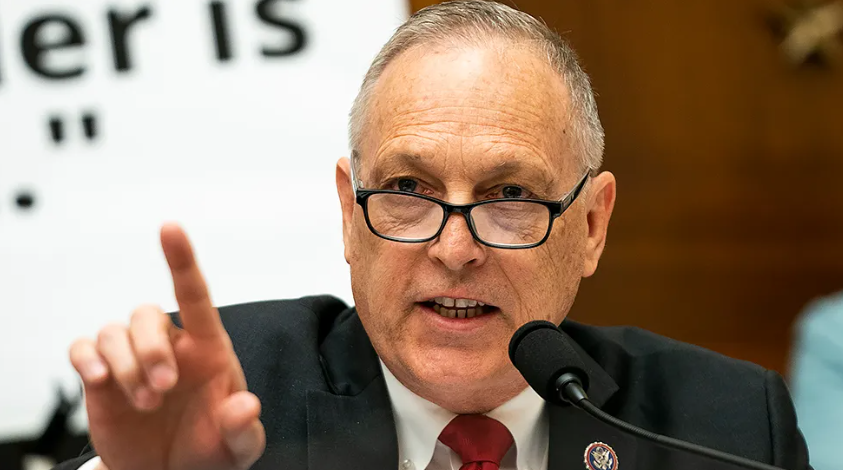Republican Representative Andy Biggs is demanding answers from the director of the White House's Office of National Drug Control Policy (ONDCP) after a recent Wired report revealed a secret government surveillance program that has been in operation for over a decade. The program, known as Data Analytical Services (DAS) or Hemisphere, has reportedly collected American phone call data, including those not suspected of any crimes.
The DAS program, which is run in coordination with telecommunications giant AT&T, has received over $6 million in funding from the White House and allows for the targeting of any calls using AT&T's infrastructure. This revelation comes amidst the ongoing debate over the reauthorization of Section 702 of the Foreign Intelligence Surveillance Act (FISA).
In a letter to ONDCP director Dr. Rahul Gupta, Congressman Biggs expressed concern over the legality of the DAS program and demanded transparency on its reach and compliance with the Fourth Amendment.
⚡Breaking News⚡
The #surveillance program known as Data Analytical Services has been actively collecting trillions of domestic call records from Americans including those of individuals not suspected of any crimes. 📱 pic.twitter.com/GIXu1a8fOS— Tuta (@TutaPrivacy) November 21, 2023
Biggs noted that Gupta had called on Congress to reauthorize Section 702 in a recent op-ed, without disclosing his office's involvement in funding the Hemisphere Project. The Arizona representative emphasized that this latest revelation proves the need for a broader national conversation about surveillance and the protection of Americans' privacy.
The Hemisphere program is just one example of the loopholes in federal law that allow the government to conduct mass surveillance with little to no oversight. As part of his demand for information, Biggs asked for details on all ONDCP-funded programs that make Americans' private data available to law enforcement agencies.
The Project for Privacy and Surveillance Accountability (PPSA) pointed out that the Hemisphere program is even larger than a previous program shut down for abuse and declared illegal by the 2nd Circuit. They noted that agents were instructed to never mention the program in official documents as far back as 2013, raising further concerns about its legality and transparency.
“a surveillance program now known as Data Analytical Services (DAS) has for more than a decade allowed federal, state, and local law enforcement agencies to mine the details of Americans’ calls, analyzing the phone records of countless people who are not suspected of any crime,…
— Greg Scott (@GScottSays) November 22, 2023
James Czerniawski, a senior policy analyst at Americans for Prosperity (AFP), also weighed in on the report, stressing the need for surveillance reform. He echoed Biggs' call for transparency and condemned the government's mass collection of phone records, stating that it is unacceptable and violates the privacy of Americans.
In response to these revelations, Biggs is pushing for the implementation of civil liberties protections outlined in the bipartisan Government Surveillance Reform Act. This bill, backed by former Rep. Bob Goodlatte and former Sen. Mark Udall, aims to close loopholes in federal law and increase oversight of government surveillance programs.
Meanwhile, Senator Ron Wyden has sent a letter to Attorney General Merrick Garland, expressing his concerns over the DAS program and the potential violations of Americans' constitutional rights. As the debate over surveillance reform continues, it is clear that the Hemisphere program has brought new urgency to the need for stronger protections for Americans' privacy.

